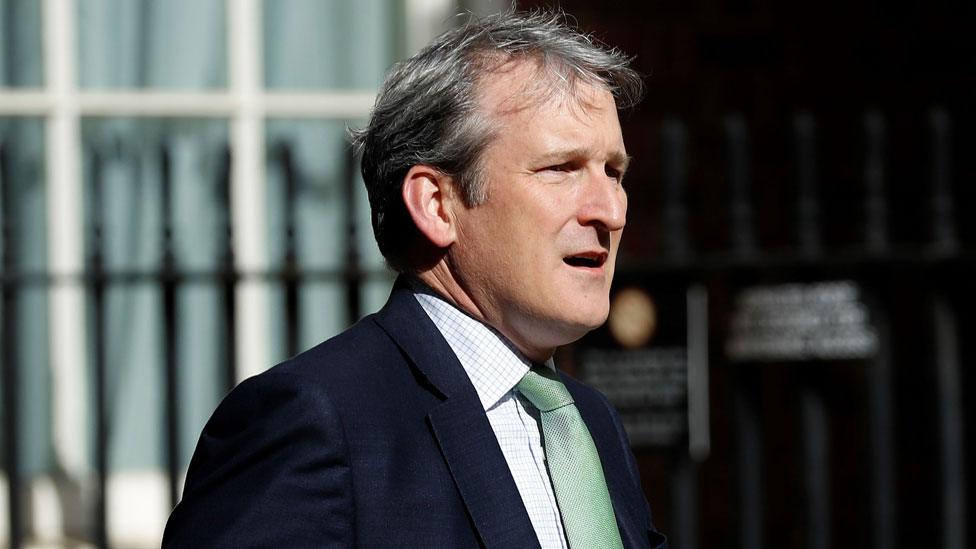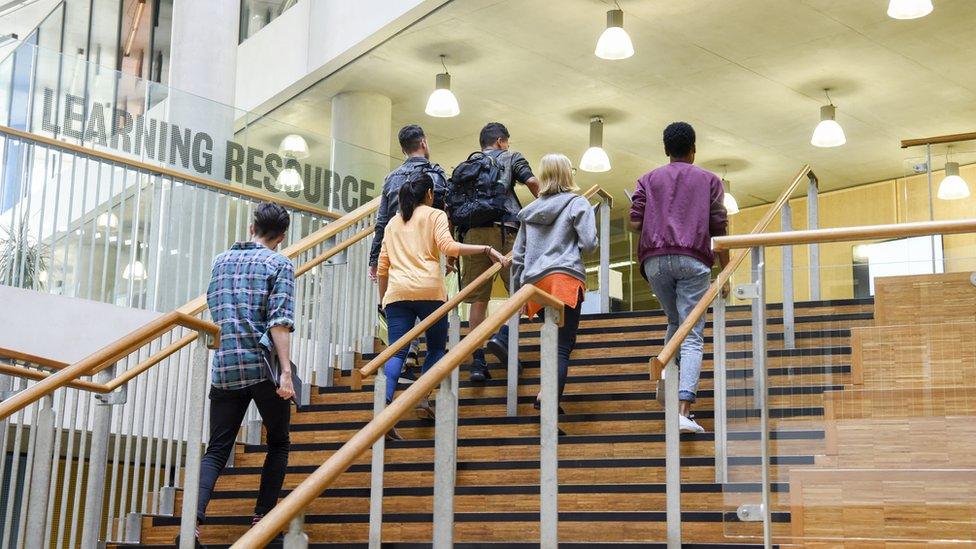'Grade inflation' means 80% more top degree grades
- Published
- comments

The proportion of students in England awarded first-class degrees continues to increase - rising by 80% since 2010-11, the university watchdog says.
The Office for Students, warning of grade inflation, says for almost three-quarters of universities such increases in top grades are "unexplained".
The University of Surrey increased its proportion awarded first-class degrees from 23% to 47% of students.
Education Secretary Damian Hinds warned against "unfair practices".
"Worries about grade inflation threaten to devalue a university education in the eyes of employers and potential students," said Susan Lapworth, director of competition for the Office for Students.
'Disappointing'
The higher education watchdog also examined why the proportion awarded top degrees might have risen from 16% to 29%, such as students arriving from school with better qualifications.
But the analysis found much of the increase could not be explained.
The figures showed over 40,000 more students graduated with firsts last summer than in the cohort of seven years before.
Mr Hinds said that if universities were giving many more top degrees without a legitimate reason, it was unfair on those who had studied to the same standard in previous years.

Damian Hinds has warned that grade inflation is unfair on students from previous years
"We owe it to the hard-working students and institutions who play by the rules to stamp out this unfair practice," said the education secretary.
"Today's figures are disappointing and risk compromising the public trust in the high standards of our universities," he said.
Big increases
The watchdog showed the changes in students awarded first-class degrees between 2010-11 and 2017-18, including:
Imperial College London from 31% to 46%
University of Huddersfield: 15% to 40%
University College London: 24% to 40%
Durham University: 18% to 38%
University of East Anglia: 14% to 39%
University of Northumbria: 16% to 35%
University of West London: 13% to 34%
Staffordshire University: 14% to 34%
The study also looked at those awarded either first or upper-second class degrees (2:1s). These now account for the great majority of degrees.
In the University of Bristol, 92% of students are awarded either a first or 2:1 and at Cambridge 94% reach this threshold.
'Stark warning'
There have been big increases in the proportion of students awarded these two top grades despite beginning university with relatively low A-level grades.

Among those going to university with grades below three Ds at A-level, seven years ago about 40% were awarded the top two grades - and that has risen to above 70%.
The education secretary has previously warned universities to stop "spiralling" grade inflation.
But this trend has continued and the Department for Education now says universities have been given a "stark warning" that this needs to change.
"Universities are determined to tackle unexplained grade inflation," said Dame Janet Beer, president of Universities UK.
"The sector's collective will to take ownership of this challenge is strong, as we recognise it is crucial that we keep the confidence of students, employers and the public, in the value of a university qualification."
- Published19 December 2018

- Published21 June 2018

- Published22 October 2018
